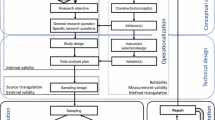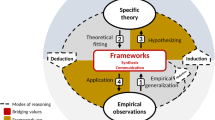Abstract
Walking simultaneously in two worlds as an Indigenous researcher, navigating Indigenous and Western epistemologies/methodologies can have its challenges. Indigenous methodologies have become an important element of qualitative research and have been increasingly taken up by both Indigenous and non-Indigenous researchers. Indigenous methodologies seek to ensure that the research is culturally safe and culturally respectful through recognition of Indigenous worldviews, respect, and accountability. It is no longer research on or about Indigenous people, rather it is becoming research for and with Indigenous people. In this paper, we reflect on the experiences of an Indigenous researcher working with a non-Indigenous supervisor within an overarching Western theoretical framework of poststructuralism while also using Indigenous methodologies. We discuss the tensions and points of connection that emerged in the research design process. We suggest that Indigenous and Western epistemologies/methodologies do not have to be used to the exclusion of each other; they can be used effectively to complement and support each other.
Similar content being viewed by others
References
Andreotti, V. (2010). Global education in the ‘21st century’: Two different perspectives on the ‘post-’ of postmodernism. International Journal of Development Education and Global Learning, 2(2), 5–22.
Andrews, T. (2012). What is social constructionism. Grounded theory review, 11(1), 39–46.
Bessarab, D., & Ng’andu, B. (2010). Yarning about yarning as a legitimate method in Indigenous research. International Journal of Critical Indigenous Studies, 3(1), 37–50.
Burr, V. (2003). Social constructionism (2nd ed.). London: Routledge.
Chilisa, B. (2011). Indigenous research methodologies. Los Angeles: USA Sage Publications.
Dean, C. (2010). A yarning place in narrative histories. History of Education Review, 39(2), 6–13.
Denzin, N. K., & Lincoln, Y. S. (2005). The Sage handbook of qualitative research (3rd ed.). Thousand Oaks, CA: Sage.
Foucault, M. (1980). Power/Knowledge. Selected interviews and other writings 1972-1977 (C. Gordon, L. Marshall, J. Mepham & K. Soper, Trans.). Brighton: Harvester Press.
Gee, J. P. (2015). Social linguistics and literacies ideology in discourses (5th ed.). London: Routledge.
Getty, G. A. (2010). The journey between western and Indigenous research paradigms. Journal of Transcultural Nursing, 21(1), 5–14.
Kidd, W., & Teagle, A. (2012). Culture and identity (2nd ed.). Basingstoke: Palgrave Macmillan.
Koster, R., Baccar, K., & Lemelin, R. H. (2012). Moving from research ON, to research WITH and FOR Indigenous communities: A critical reflection on community-based participatory research. The Canadian Geographer/Le Géographe Canadien, 56(2), 195–210.
Kovach, M. (2015). Emerging from the margins: Indigenous methodologies. In S. Strega & L. Brown (Eds.), Research as resistance: Revisiting critical, Indigenous, and anti-oppressive approaches (2nd ed., pp. 43–64). Toronto: Canadian Scholars’ Press/Women’s Press.
Martin, K. (2003). Ways of knowing, being and doing: A theoretical framework and methods for Indigenous and indigenist re-search. Journal of Australian Studies, 27(76), 203–214.
Martin, K. L. (2008). Please knock before you enter: Aboriginal regulation of outsiders and the implications for researchers. Brisbane, QLD: Post Pressed.
McLeod, J. (2009). What was poststructural feminism in education? In M. W. Apple, W. Au, & L. A. Gandin (Eds.), The Routledge international handbook of critical education (pp. 137–148). New York: Routledge.
Moran, A. (2005). White Australia, settler nationalism and Aboriginal assimilation. Australian Journal of Politics & History, 51(2), 168–193.
Patton, M. Q. (2002). Qualitative research & evaluation methods (3rd ed.)., Integrating theory and practice Thousand Oaks, CA: Sage Publications.
Ray, L. (2012). Deciphering the “Indigenous” in Indigenous methodologies. AlterNative: An International Journal of Indigenous Peoples, 8(1), 85–98.
Rigney, L.-I. (1999). Internationalization of an Indigenous anticolonial cultural critique of research methodologies: A guide to Indigenist research methodology and its principles. Wicazo Sa Review, 14(2), 109–121.
Rose, M., & Khan, G. (2013). Make it count: Numeracy, mathematics and Indigenous learners evaluation. Unpublished Report on Cultural Competency for the Australian Association of Mathematics Teachers Inc.
Simonds, V. W., & Christopher, S. (2013). Adapting Western research methods to Indigenous ways of knowing. American Journal of Public Health, 12(103), 2185–2192.
Smith, L. T. (2012). Decolonizing methodologies: Research and Indigenous peoples (2nd ed.). London: Zed Books.
Weedon, C. (1999). Feminism, theory, and the politics of difference. Oxford: Blackwell Publishers Inc.
Weedon, C. (2004). Identity and culture: Narratives of difference and belonging. Maidenhead: Open University Press.
Wilson, S. (2001). What is Indigenous research methodology? Canadian Journal of Native Education, 25(2), 175–179. Retrieved from http://search.proquest.com/docview/230307399?accountid=10344.
Wilson, S. (2003). Progressing toward an Indigenous research paradigm in Canada and Australia. Canadian Journal of Native Education, 27(2), 161–178.
Wilson, S. (2007). Guest editorial: What is an indigenist research paradigm? Canadian Journal of Native Education, 30(2), 193.
Wilson, S. (2008). Research is ceremony: Indigenous research methods. Black Point, NS: Fernwood Publishing.
Author information
Authors and Affiliations
Corresponding author
Rights and permissions
About this article
Cite this article
Singh, M., Major, J. Conducting Indigenous research in Western knowledge spaces: aligning theory and methodology. Aust. Educ. Res. 44, 5–19 (2017). https://doi.org/10.1007/s13384-017-0233-z
Received:
Accepted:
Published:
Issue Date:
DOI: https://doi.org/10.1007/s13384-017-0233-z




